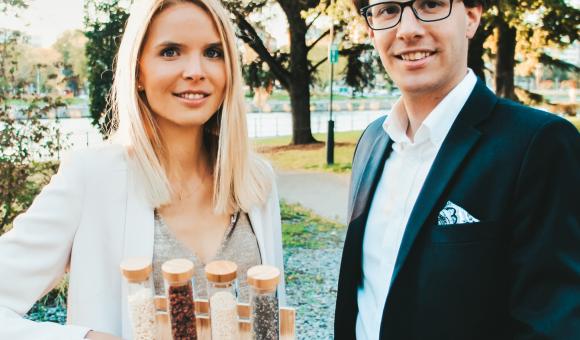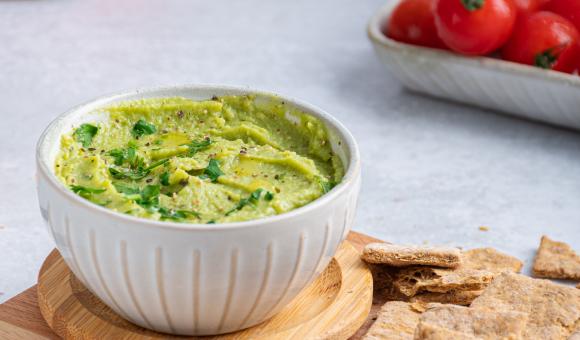
Linatelle, a food company based in the province of Liège, has just started operating a production line for biscuits made from spent grain, a residue from the beer brewing process. This product, which until now was used as cattle feed or simply thrown away, will now be reused to the delight of those who love healthy, local and original snacks. Linatelle has also unveiled a new way of strengthening the circular economy between Walloon companies.
Do you know what draff is? Or spent grain? It's easy, it's what's left of the barley after the beer is brewed. A material which is plentiful in Belgium, given the number of breweries per square kilometre. Recognising that, at the end of the brewing process, spent grains were destined for animal feed or simply thrown away, Linatelle (Be-Nat products), in partnership with the Val Dieu brewery, decided to re-use this by-product which has many nutritional qualities: high protein content (20-33% of dry matter), essential amino acids, rich in fibre, vitamins (B9, B2, B3) and minerals (Phosphorus, Calcium & Magnesium).
"Since 2016, we have been creating innovative and healthy food products", Florence Juprelle explains. "And it was because of this that the brewery, which wanted to create crackers based on spent grain, contacted us." After several months working on the recipes and developing the machine to produce the biscuits, this initial partnership with the brewery resulted in the creation of a range of 3 new healthy products.
As a sign of positive interest from both distributors and consumers, although the marketing of these spent grain crackers has not yet begun, the production line is already struggling to meet demand. "The brewery is currently negotiating the sale of the products, but it is already a great success," says Florence. "We are already looking to increase production because we can't keep up with demand."
Sustainable development and the circular economy
Taking sustainable development and its main challenges into account forms the basis of Linatelle's business strategy. Since it was founded in 2016, the company has implemented production processes based on sustainability and strengthening the circular economy, for example by developing a partnership between local Walloon producers, offering healthy and organic products... "With this approach, we want to make consumers aware of the entire life cycle of what they consume and promote healthy and sustainable food," explains Florence.
These crackers meet all the requirements. Spent grain is not only high in protein, but is also rich in fibre and contains vitamins B9, B2 and B3 and minerals that are essential for the body to function properly. "We are therefore involved in a process of recycling a residue that can now provide a benefit in terms of nutrition," Florence adds.
In terms of 'society', Linatelle has seized the opportunity to train workers and offer them work. "Our production line is currently running at full capacity at the Jean Gielen sheltered workshops in Waremme," says Florence. "Because we believe that for a product to be truly responsible, it must combine other positive impacts in addition to the ecological aspect. It must be good for health, but it must also have a positive societal and environmental impact."

